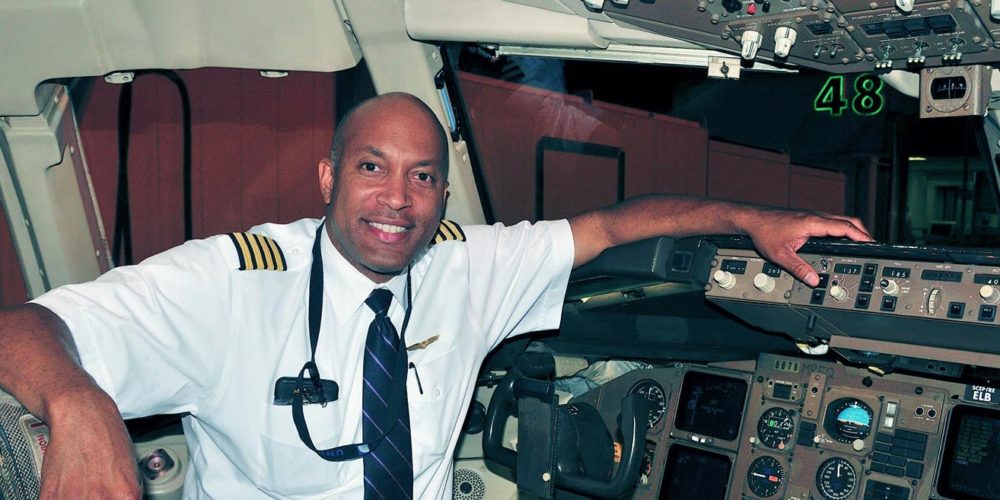I grew up in the Washington D.C. area, and for as long as I can remember I wanted to fly.
My story could start with the 5-year-old version of me who, as a passenger one day on a Piedmont Airlines 727, thought to himself, “I want to do this when I grow up.” Fast forward to 2020, and that little kid is now a 767 captain for a major airline. Dream actualized — not that it was the least bit easy or guaranteed.
Growing up, and later as I was learning to fly, I heard the same loving admonition from my mother countless times: “You’ve got to be twice as good!” Although her advice may not have been as applicable to me as it was to the generation of African Americans that preceded me, I took it to heart and set off on my educational and career trajectory.
Once at Embry-Riddle, I was fortunate to have met John Paul Riddle himself. I learned to fly, took advantage of the career center’s industry contacts to help land my first job, made lifelong friendships and presided over the Kappa Alpha Psi fraternity.
I had chosen a career path that, quite frankly, would not have been available to my father, who even as a World War II veteran would have faced obstacles and opposition in a system where policies of exclusion were taken for granted, and Black airline pilots were all but nonexistent. By the time I entered college in the 1980s, the commercial pilot population was still only 1% African American.
Today that number approaches 3%, while African Americans make up 13% of the U.S. population. We’ve come a long way, but we still have a ways to go.
An airplane itself certainly doesn’t care about the race, color or creed of its pilots. And as skilled, highly-trained professionals, our ability to perform at the highest levels is never a function of race, gender or ethnicity. However, while piloting skills may be the great equalizer, the opportunity to become a pilot has been historically limited.
The greatest strides in diversifying the cockpit have occurred only in the last few years. Regrettably, some of those gains may be reversed as the industry responds to current, worsening economic realities. Nevertheless, the cyclical nature of the industry has proven that *now* is the best time to prepare for the future. I was encouraged by the host of young African American students, as well as recent graduates, whom I met in my panel discussions at the Embry-Riddle campus earlier this year. It is incumbent on you to get in the game and help make a difference!
Meanwhile, I’m proud of the ways in which a once insular industry has evolved and continues to do so. This is an industry that must embrace positive change and realize that as both a profession and a nation, we benefit by tapping into the talents and experience of everyone, not just some. The demographic data will let you know if your inclusion efforts are truly successful. As alumni, we are both part of, and leaders of, this effort.
Editor’s Note: Keith Baskett earned a B.S. in Aeronautical Science in 1992. He was a guest panelist at Embry-Riddle’s 2020 Black Alumni Reunion in February 2020. A captain for United Airlines, he resides in New York.
